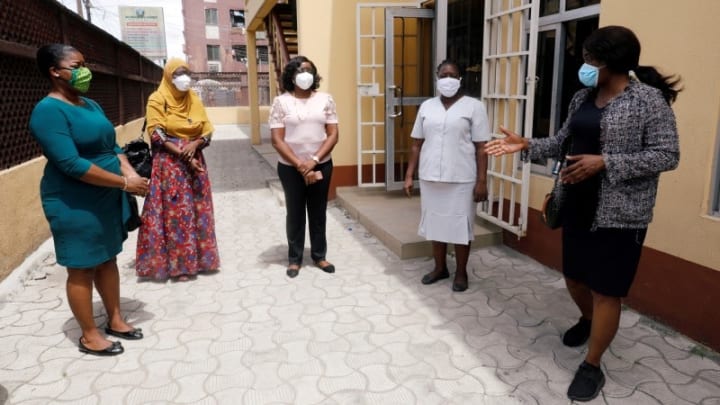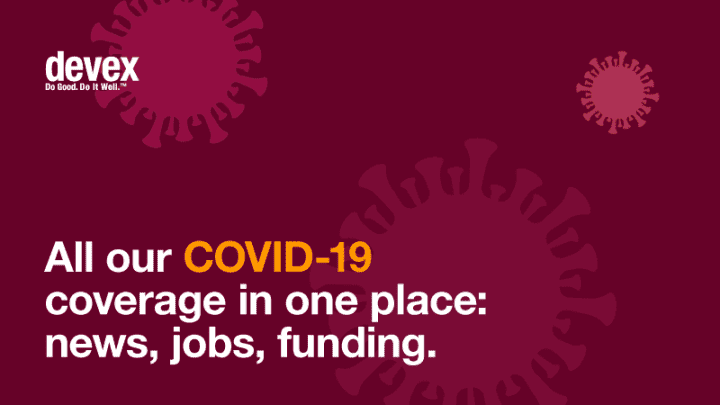
NEW YORK — The current pandemic is far from over, with COVID-19 cases continuing to climb in many countries. But it isn’t too early to begin preparing for the next pandemic.
Unfortunately, there is no guarantee that global and national lessons from COVID-19 will translate into more agile responses when another pandemic inevitably strikes, according to experts from the Resolve to Save Lives, a Vital Strategies initiative that focuses on pandemic preparedness.
In many nations, the COVID-19 crisis has exposed a dangerous lack of public trust in health officials. And the inadequate levels of international cooperation is another fissure that will need ongoing investment to mend.
“As much as I would like to be optimistic and say that because of this experience we will be better prepared for the next, it is not going to happen organically. I think there is going to be a substantial amount of work to do in countries in order to incrementally improve on the types of deficits we have seen highlighted by the COVID pandemic,” Chris Lee, a senior technical adviser on the Resolve to Save Lives team, told Devex last week, following a webinar on pandemic readiness.
Improved pandemic preparedness could cost countries less than $1 per person a year, according to the 2017 findings by the World Bank International Working Group on Financing Preparedness.
“The return on investment is clear. But when there is no emergency, there is no urgency, I think, to drive financing,” Lee said. He explained that he “had to work harder before COVID” to make the argument to governments that a pandemic will affect the whole of society, and requires constant investment in systems and adaption.
Sanitation workers left exposed to COVID-19
“We are continuing our job under great risk only to give the public some level of comfort. But it is very unfortunate that people do not value our sacrifice,” one sanitation worker in Bangladesh said.
“At the country level, we have seen that the technical capacities are necessary, but not sufficient in how well a country does during a pandemic. That will depend on strong and decisive leadership, informed by science, and the trust between a population and its government,” Lee said.
Investing in preparedness
Even though leaders are now more aware of the importance of pandemic preparedness, funding for everything from public health care access to contract tracing programs remains insufficient in many countries, according to Amanda McClelland, senior vice president at Resolve.
That comes in spite of no small amount of planning. One-hundred-and-ten countries have committed to preventative funding through the World Health Organization’s voluntary joint external evaluation process, which was developed in 2005 to assess countries’ ability to respond to public health threats. And some implemented national action plans, leading to “improvements that we wouldn’t have had four or five years ago,” according to McClelland. But research from 2018 showed that there were large variations in preparedness, and many countries were not ready for an outbreak — something demonstrated by the current crisis.
“We do that for hurricanes. We do that for floods. We do that for other disasters. Yet we continually under-invest in that for public health emergencies It has been very difficult to get political engagement in sustained preparedness, despite these large outbreaks,” McClelland explained.
“Preparedness is like a muscle. You have to keep working at it. If you don’t, it atrophies.”
— Amanda McClelland, senior vice president , Resolve to Save LivesNew findings from Resolve show that more than 18 countries have experienced a breakdown in access to essential health care services during this pandemic, according to McClelland.
“I think it's hard to maintain focus on something that you're preventing. And so it's very easy for the threat to feel like it's gone away. It doesn't mean that a new pandemic couldn't happen while we're in this one. They don't wait for one another. And, so, part of the challenge will really be maintaining the sense of threat and the need for awareness,” McClelland continued.
Learning from experience
If there’s any cause for optimism, it comes from seeing how some countries’ previous experiences with other outbreaks informed their ability to contain COVID-19.
“The countries that dealt with SARS have really had a much better time dealing with COVID. Some of those behaviors include mask-wearing, taking strong action on communicating with populations, changing people's way of life. This is something countries had experienced and learned from, and other places were slower to adopt,” Lee said.
Official caseload and recorded deaths also remain relatively low in some African countries that have faced Ebola and developed contract tracing systems, including Liberia and Sierra Leone.
“They've been doing this for a long time now, finding cases, finding contacts, explaining to communities they've been in this pattern, whether it is Ebola, or Lassa fever, or yellow fever. Until those systems become overwhelmed, those lower-resourced teams that are used to doing this type of work will do well, and have been doing well,” McClelland said.
Uganda, which has had a series of Ebola and other infectious disease outbreaks over the past several years, has developed a singular approach to health work and communications that is really strong, explained Immaculate Nabukenya, an epidemiologist with the country’s Infectious Diseases Institute. Uganda, which has had 3,288 confirmed cases of COVID-19, has also been on high alert because of the Ebola outbreak in the Democratic Republic of the Congo.
“We need to work with communities and make sure we build trust. If the community believes the message you give, if the community trusts what the public health leaders are saying, if the political leaders are saying the same as the public health leaders, then we can use minimum intervention to achieve impact,” Nabukenya said during the webinar.
But no single country’s response to COVID-19 has been perfect. And work during this pandemic to reduce health risks will need to be maintained.
“Unfortunately, preparedness is like a muscle. You have to keep working at it. If you don’t, it atrophies. And so just because you are good at it a few years ago doesn't mean that you'll be good at it when you need it,” McClelland said.





